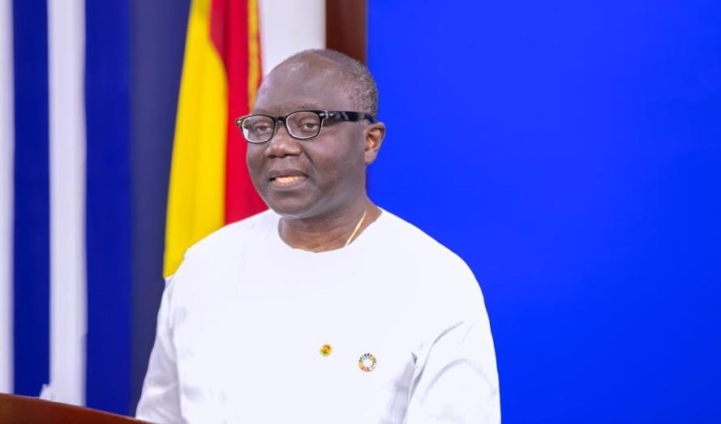Ghana is expected to reach a moderate risk of debt distress by 2028, the International Monetary Fund has disclosed in its Staff Report on Ghana.
It pointed out that the bulk of the domestic debt restructuring process has however been completed.
“The combination of the authorities’ [government] debt restructuring strategy and reforms under the programme is expected to deliver debt sustainability as it eliminates all threshold breaches under the Lower-Income Countries - Debt Sustainability Framework (LIC-DSF) by 2028 and restores a moderate risk of debt distress”, it mentioned.
According to the Fund, this also means that the programme is fully financed during the first 12 months with good prospects for the remainder of the programme.
Ghana suspended external debt payments to official bilateral and external commercial creditors since December 2022 and has, therefore, been accumulating arrears to these creditors.
This is because of its debt distress position.
The IMF therefore expects the financing assurances to be provided under the Common Framework to be adequately representative, allowing for arrears to other official bilateral creditors to be deemed away under the Lending into Official Arrears (LIOA) Policy.
As required under the Fund’s Lending into Arrears (LIA) policy, the IMF staff assesses that the authorities are making good faith efforts to reach a collaborative restructuring agreement through engagement in early dialogue, timely sharing of information and giving opportunity for creditors to input on the restructuring strategy.
Again, appropriate policies and prompt Fund support are essential for the successful implementation of Ghana’s adjustment programme.
Ghana’s debt fell ¢141.1bn to ¢434.6bn in December 2022 – BoG
Ghana’s public debt stock fell by ¢141.1 billion in December 2022 to end the year at ¢434.6 billion, approximately 71.2% of the Gross Domestic Product, data from the Bank of Ghana has revealed.
This was equivalent to $52 billion.
According to the May 2023 Summary of Economic and Financial Data, Ghana’s debt in cedi term rose consistently to ¢575.7 billion ($43.9 billion) at the end of November 2022, about 93.5% of GDP.
This came after the country successfully completed its debt exchange, paving the way for the Executive Board of the International Monetary Fund to approve a $3 billion Extended Credit Facility (ECF) programme.
Latest Stories
-
Emmanuel Adjei cycles 10,000km solo from Munich to Accra to raise €100,000 to support education in rural communities
13 seconds -
From bite to breakthrough: How AI and brave family helped save a child at KATH
6 minutes -
Today’s Front pages: Tuesday, June 3, 2025
23 minutes -
Cedi appreciation a strategic windfall for energy sector recovery and ECG’s solvency
46 minutes -
GSE rally to continue into quarter 3; market to record 45% return for investors in 2025
51 minutes -
Bond market: Trading activity rose 28% to GH¢1.41bn
56 minutes -
We’ll be waiting for you to bring Ofori-Atta back – Frank Davies calls OSP’s bluff
1 hour -
You stepped forward to assist your nation – Mahama backs Otumfuo’s mediation in Bawku crisis
1 hour -
‘We thought that was abuse of state power’ – Alhassan Tampuli rebukes EOCO over Wontumi detention
1 hour -
Gov’t moves to ensure inclusive access to free tertiary education for Persons with Disabilities
2 hours -
Mobile data prices to fall, users to get more value – Sam George
2 hours -
Alhassan Tampuli urges OSP to grant Ofori-Atta’s request for virtual appearance
2 hours -
2025 Ghana-EU Business Forum: Fidelity Bank champions youth entrepreneurship and gender inclusion
3 hours -
Ghana’s Digital Future: Hope for Africa’s digital identity and sovereignty
3 hours -
Former Law School Director calls for overhaul of outdated legal education system
4 hours

